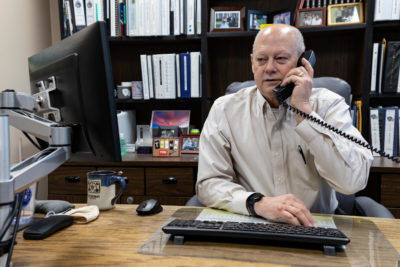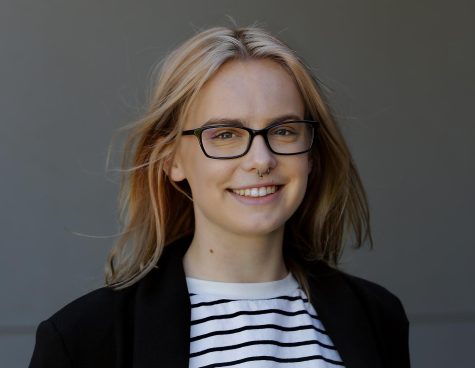Fellowship program created to give doctoral students experience with police department
Program opened eyes for doctoral student studying criminal justice

Pullman PD Chief Gary Jenkins said at the time the award application was filed for the fellowship program, there were 350 others applicants.
June 3, 2021
A Research Fellowship Program conducted by WSU and Pullman Police Department was awarded the Smart 50 Award at the end of May.
The award recognizes innovation in government as it relates to improvising various outcomes, said David Makin, WSU Department of Criminal Justice and Criminology associate professor.
“It’s really about how local government business entities are innovating to be more efficient, more effective and more equitable in their role,” he said.
Pullman PD Chief Gary Jenkins said the award is handed out by an organization called Smart Cities Connect. At the time the award application was filed, there were 350 others applicants.
“Out of all [the applications] they received … they felt that ours was one of the top 50,” Jenkins said.
The program allows a doctoral student to get directly involved with providing research for police, he said.
“When we have some research needs, we have questions that we want answered,” he said, “then that doctoral student will provide that research and assistance to us.”
Makin created the fellowship with the goal of helping to train doctoral students on how to work with police and what research can be done to benefit smaller departments like Pullman PD.
“This is really a fellowship to train graduate students to be able to work with these smaller departments on really important research that they need to really become better at what they do,” he said.
Makin said this is a three-year fellowship that runs from 2019 until 2022.
Megan Parks, public safety research fellow, said she applied for the fellowship when it was just starting, around the same time she was applying for her doctoral program.
Parks said her primary role is helping the police department make use of the data they receive and engage with.
“I do things like help with grant writing [and] some evaluation research projects,” she said. “I’ve done some research briefs and data briefs for the agency.”
She said working with the program is an awesome experience and she enjoys working with the police department.
“It’s really kind of opened my eyes to a lot of these types of collaborations between the police firm and the university and just kind of bridging that gap,” she said. “I think being able to be so involved with the police department has really been my favorite part.”










